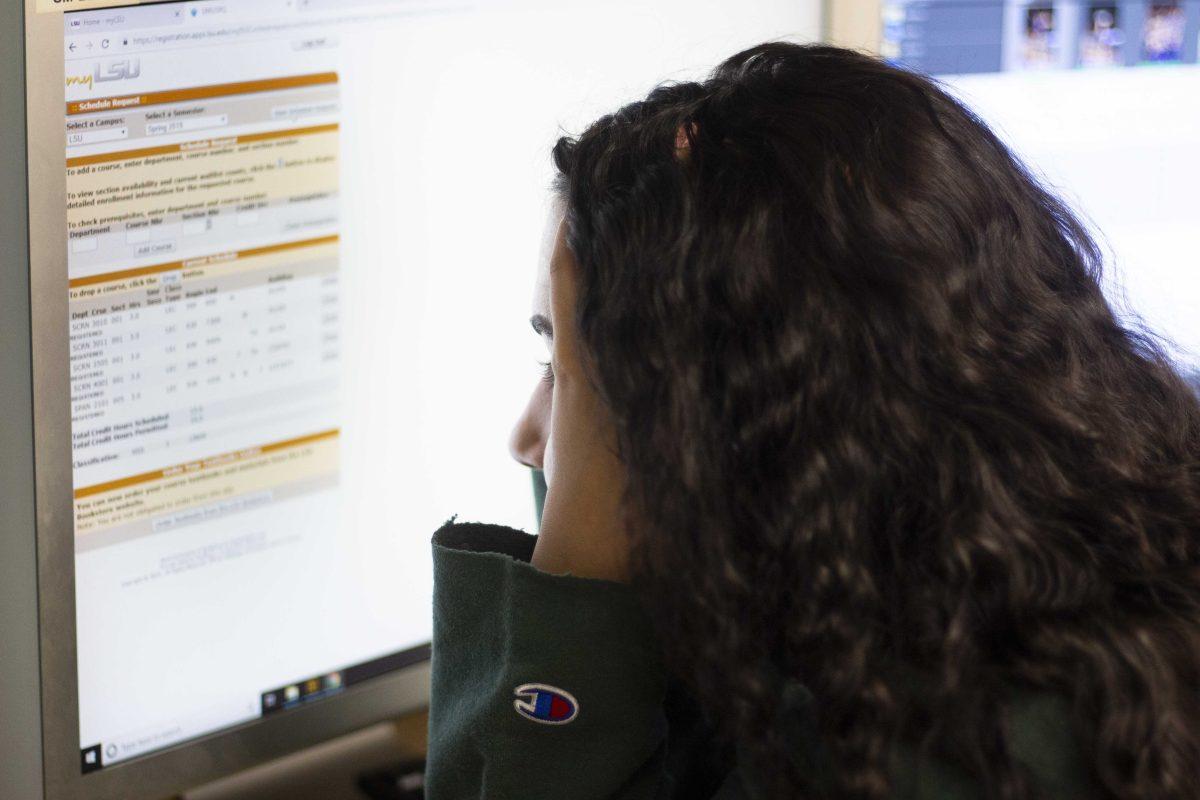Scheduling season officially began on Oct. 20, leaving many University students waiting in front of their laptops, eagerly refreshing the scheduling page.
Chemical engineering junior Jacob Danklefsen is one of these students, planning his schedule in advance so he can enter his choices in the computer right at 5 p.m. on the date he schedules.
“I’ve had problems with the website crashing,” Danklefsen said. “But when it works correctly, I’ve never had a problem getting the classes I want because I’m in the honors college.”
Danklefsen’s position in the Roger Hadfield Ogden Honors College means he will get the second-highest scheduling priority, after spring and summer graduate candidates.
Scheduling priorities are determined based on a student’s number of credit hours completed and currently in progress, according to the University Registrar website. Spring 2020 priority scheduling information is available in the scheduling booklet.
The only scheduling category not based on hours is reserved for Honors College students, like Danklefsen, as well as for student athletes, disabled, military and veteran students.
On Oct. 20, at 5 p.m., spring and summer graduate candidates began creating their final University schedule. Scheduling continues daily until Nov. 8, when the last crop of students, those with fewer than 14 hours completed, will be able to select whatever courses are left for their schedules.
University Registrar Clay Benton said it’s important to keep top-tier groups exclusive and reserved for students who need it.
“One of the reasons we spread it out is because there’s nothing worse than when a student logs in and can’t get the course they want,” Benton said. “We know that panic.”
Some groups are mandated to be given scheduling priorities, such as students with disabilities. Other groups have petitioned and been awarded that status.
“We are very careful with what groups we put in advanced priorities because we want to make sure we aren’t disenfranchising members of certain groups,” Benton said.
Degree candidates comprise the largest category by a large margin, Benton said. Previously, degree candidates had second priority below the athletes, veterans and disabled students. The system recently changed in an effort to ensure graduating students could schedule the classes they needed.
Each scheduling tier beyond the degree candidates pool encompasses about 1,500 to 3,000 students.
Reducing the number of students in each tier and spreading out scheduling dates over several weeks has helped reduce website crashing issues in recent years.
Students may also notice their MyLSU inbox filling up with notifications reminding them of their scheduling date. While some might dismiss the mass emails, Benton said this is another solution to scheduling website crashes.
“One of the things we’ve tried is sending multiple notifications telling them to please not access the system,” Benton said. “Students still slow down the system when they try to schedule and it’s not their allotted time.”
Although students may have to wait a few minutes past their exact time slot to schedule, the website usually loads in a few minutes. Benton said this is a huge improvement from prior years.
Benton said the most high-demand classes appear to be science, music and art labs that meet in confined workspaces. But there’s still hope for students who need these exclusive, tactile experiences through the relatively recent introduction of wait lists.
“We have had students who have issues getting courses, but introducing wait lists has helped a lot,” Benton said. “It really does work.”
Wait lists also help maintain seniority, because upperclassmen still have the opportunity to get a high-demand class above incoming freshmen.
Before the wait list system, students would have to wait another semester for the course offerings or go to that class during the first week of school and hope for an empty seat.
“We always tell people on the wait list to be patient and hang tight,” Benton said.
Textiles, apparel and merchandising sophomore Carmen Brand said she always experiences success with the wait list system.
“I have been wait listed, but I always get the class at the very last minute, even if it’s right before the semester starts,” Brand said. “I’ve never had trouble getting the classes I needed.”
Scheduling SZN: LSU works to prevent website crashes, allow students to enroll in desired classes
By Anna Jones
October 24, 2019
LSU student browses the University’s schedule booklet.





